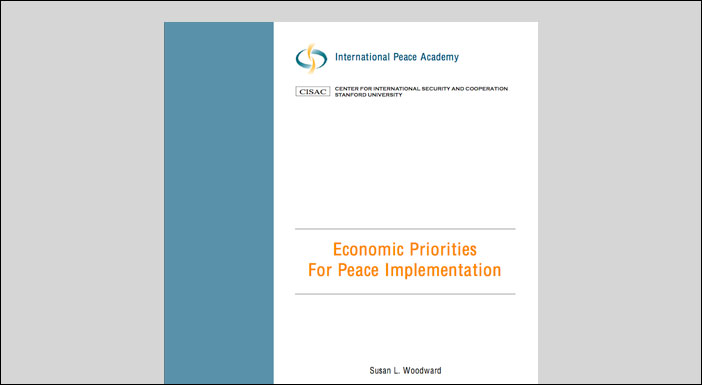 There has been surprisingly little systematic analysis of how economic factors contribute to the success or failure of peace agreements. What is clear, however, is that economic factors play a more significant role in the failure of peace agreements than they do in the success of such initiatives.
There has been surprisingly little systematic analysis of how economic factors contribute to the success or failure of peace agreements. What is clear, however, is that economic factors play a more significant role in the failure of peace agreements than they do in the success of such initiatives.
Peace agreements are often very weak on economic aspects. This is problematic because the success of the first phase of peace implementation is largely dependent on three economic factors: sufficiently rapid economic revival to generate confidence in the peace process; adequate funding to implement key aspects of the peace agreement; and, for a sustainable peace, there must be sufficient funding to enable the establishment of government institutions and the transition to a peace-time economy.
Five important lessons have emerged from experience in the area of peace implementation over the last decade: (1) the need for broad-based impact assessments; (2) an early emphasis on employment is critical; (3) invest in building institutional and social capital; (4) donor decisions about whom to assist and what to fund have lasting political impacts; (5) an international presence introduces economic distortions.







